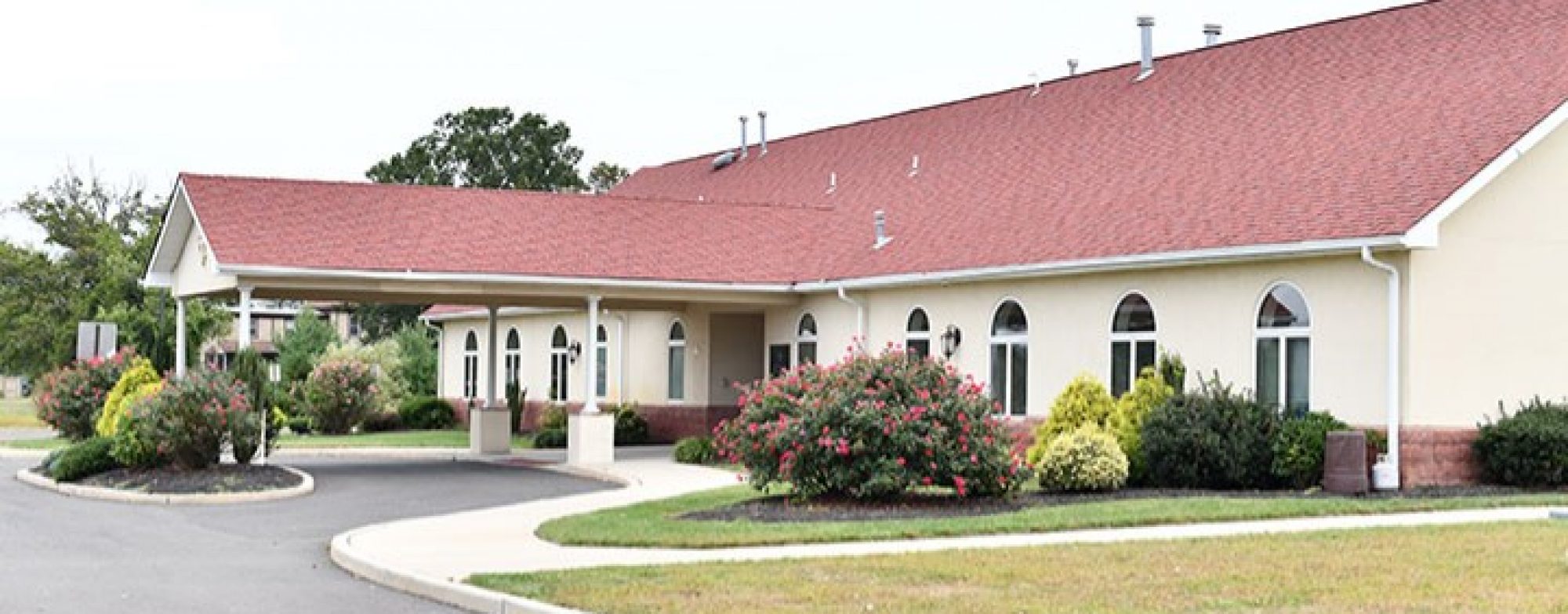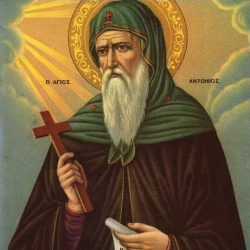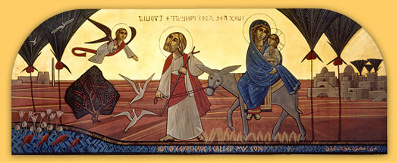“Blessed is Egypt My People” Isaiah 19:19,25
The Christians Of Egypt “The COPTS”
Coptic Christians are the descendants of the Ancient Egyptians and make up about 10% of the Egyptian population. There are 15 million Copts worldwide, in many different countries, including Canada, the United States, Europe and Australia.
The Coptic Church: is one of the most ancient churches in the world. Saint Mark, the writer of the second Gospel, founded The Coptic Church in the name of Jesus Christ around 44 AD.
Coptic: The word “Coptic” is derived from an old Egyptian name for Egypt, which is E-Ka-Ptah meaning the house of the spirit of the God “Ptah” who was the major god of Memphis, the Capital of Egypt at that time. Later in history the term “Copt” was used by the Arab invaders to refer to the native Egyptians. Today, “Copt, or Coptic” is used to refer to the Orthodox Christians of Egypt and the final form of the Eygptian language, which continues to be used in Church prayers.
How did the Egyptians Accept Christianity?
The Copts as successors of the ancient Egyptians are defined as the modern children of the Pharaohs. The Pharaohs’ religious background helped them accept Christianity with eagerness and enjoy its depth, primarily because the Egyptian mind was absorbed in the world to come, and in the resurrection.
Visit of Holy Family to Egypt: Jesus visited Egypt as a baby with Saint Mary his mother, and Saint Joseph (Matt. 2:13-15). Some early Church fathers considered Jesus himself, through this visit to be the real founder of the Coptic Church. This visit fulfilled what was prophesied by Isaiah 19:19 “Blessed be Egypt My People”. Today, there are churches and monasteries in places visited by the Holy Family in Egypt.

What is the Coptic Church?
Trinitarian: believing in the Holy Trinity: Father, Son and Holy Spirit (being one God.)
Apostolic: having been founded by the apostle Saint Mark.
Scriptural (Biblical): having as its main point of reference the Holy Bible.
Traditional: using the teachings of the early Church Fathers.
Sacramental: having the seven Church sacraments, namely: Baptism, Chrismation (Confirmation), Repentance and Confession, the Eucharist (Communion), Priesthood, Matrimony, and Unction of the Sick.
Conservative: in that it does not change basic matters of Faith, Dogma or Tradition to suit current trends (matters such as language and day-to-day practices do, however, change to suit conditions of ministry).
Coptic Calendar: The Coptic Church is recognized as having suffered one of the most violent waves of persecution in Christian history. Persecution during the reign of the Roman Emperor Diocletian (284-305) is considered by the Copts as the age of persecutions and resulted in the discontinuation of a 5000 year old tradition of beginning a new calendar with each ruler (example: Year 1 of the reign of Ramses II). So profound was the impact of Diocletian, that the Copts erased his name from the Calendar and renamed their calendar “Calendar of Martyrs” (Anno Martyri), where the first year of the calendar 1 A.M. (Anno Martyri) was 284 A.D., the year Diocletian began his reign. The calendar continues to this day and is used for Church services.
School of Alexandria: Saint Mark founded the famous Theological School of Alexandria. It gradually developed into one of the major centers of Christian learning and played an internationally influential role in the early Church life. Among the deans of this School are such names as Pantenus, Clement, Origen and Didymus the blind, who was using a Braille-like method to read, several centuries before Braille.
Important Coptic Personalities
Saint Anthony of Upper Egypt, who is considered to be the father and the founder of Christian Monasticism worldwide.
Saint Athanasius (Pope of Alexandria #20), who championed the defense against the very serious Arian heresy about the divinity of Christ.
Saint Cyril (Pope of Alexandria #24), who presided over the Ecumenical Council of Ephesus (431 AD) dealing with the heresy of Nestorius, Bishop of Constantinople concerning the nature of Christ.
Coptic Church Today: Today, the Coptic Orthodox Church is the largest Church in the Middle East, with about 10 million believers in Egypt. Under the leadership of His Holiness Pope Shenouda III, 117th Patriarch, there are now hundreds of Coptic churches throughout the world, including over 130 in the US. The Coptic Church takes an active role in trying to bring back the unity of Christian Faith, being involved in either official or unofficial dialogues with the major Christian Churches and denominations.
Copts take pride in the persecution they have sustained as early as May 8, 68 A. D., when their Patron Saint Mark, the Gospel writer, was slain after being dragged from his feet by Roman soldiers all over Alexandria’s streets and alleys.
THE COPTIC CREED
(From the Ecumenical Council of Nicea 325 AD, the Ecumenical Council of Constantinople 381 AD and the Ecumenical Council of Ephesus 431 AD)
We believe in one God, God the Father, the Pantocrator, who created heaven and earth, and all things seen and unseen. We believe in one Lord Jesus Christ, the Only-Begotten Son of God, begotten of the Father before all ages; Light of light, true God of true God, begotten not created, of one essence with the Father, by whom all things were made; Who for us men and our salvation came down from heaven, and was incarnate of the Holy Spirit and of the Virgin Mary, and became Man. And he was crucified for us under Pontius Pilate, suffered and was buried. And the third day He rose from the dead, according to the scriptures, ascended into the heavens; he sits at the right hand of his Father, and He is coming again in his glory to judge the living and the dead, whose kingdom shall have no end. Yes, we believe in the Holy Spirit, the Lord, the Life-Giver, who proceeds from the Father, who with the Father and the Son is worshipped and glorified, who spoke by the prophets. And in one holy, catholic and apostolic church. We confess one baptism for the remission of sins. We look for the resurrection of the dead, and the life of the coming age. Amen.


